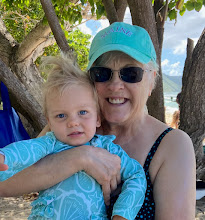Rewrites are a good thing.
In general, a novel gets better with each rewrite. Often, I read a novel that I
feel could have used just one more run-through. When I come upon a scene that’s
just a bit implausible or some dialogue that doesn’t ring authentic, I think to
myself that the writer would have benefitted with another draft.
There are decisions that
get made in rewrites. Usually those involve cutting something, or re-arranging
elements of the story: This thing needs to happen sooner, or that bit is just a
little too long, or too cute, or maybe it’s too melodramatic. There can be any
number of things “wrong” with a portion of a novel. The trouble is the
fix.
I usually know on a
gut-level when I’ve got a problem in a story. I don’t always have the solution
when I start my second draft, but I’ve got those places that need extra work
earmarked in my mind. Those trouble spots always slow down the second draft,
sometimes considerably.
When I do my first
read-through, I mark up my pages mercilessly. I have to have a hard copy to do
this, so for me, writing a novel takes reams of paper and numerous ink cartridges. I've got to have those margins, to make my marks, and remarks, and notes to
self. I’m like a teacher grading a paper.
Trouble comes with knowing
when to cut and when to add. It’s easy to cut out things, and then later say,
“I need that first bit back in here,” which is another argument for the
must-have hard copy. You will still have hold of the part you cut out if you
decide you need to add it back again.
On the computer I keep a
desktop folder labeled “CUTS,” and when I'm ready to make changes after my
pencil-edit, I save all the deleted scenes, interior monologues, and wordy
descriptions into my “CUTS” folder. It’s easy to add them back this way,
although frankly, once something gets the chop, I rarely paste it back into the
story, at least not in its original form.
Another problem with
rewrites is being too close to the story, not being able to ferret out the
parts that aren’t working. This is why critique groups are sometimes helpful
(although I’ll do another blog post on those at some point). Preferably an
editor or an agent can help with this problem, but if you’re a beginning
writer, you likely don’t have either one of those. At any rate, there comes a
time when you need an outside reader, but just not yet. You need to do a couple
more drafts first, unless you know someone you really trust, someone who can
see the forest despite the trees. (And if you do know someone like that, lend
them to me, please.) I have to get a novel as far as I can get it before I ask
anyone for help. After all, nobody knows your story better than you do, and
it’s important that you listen to yourself before you listen to someone else.
You’ll get so you know when it’s the right time to share your baby.
After my third novel came
out, I was asked to attend a reading club meeting of members who had all been
assigned my book as their monthly novel. This was an excellent group of
intelligent, thoughtful, articulate readers. Good discussion happened, and they
weren’t the least intimidated by having “the author” sitting right there
among them. It fascinated me to hear everyone’s opinion of my characters,
their take on what the theme of the book was, on the story arc and on how they
were affected by the ending. It was the last part of the discussion that was the
biggest revelation to me. Out of the twenty or so people attending, only three
felt the novel ended happily. And I was one of the three! Everyone else came away
feeling it had a tragic ending. Oops!
I have always wished I’d
taken aim at that ending just one more time. So the reader would come away with
the feeling I had intended.
The current novel is
halfway through its second draft. There are chapters that are already greatly
improved, but there are some that still stump me. I find I have more research
to do, even after all the research I have already done. I have a multitude of
rough edges to file down. Once I’m finished with this rewrite, I will once
again let the manuscript rest for a couple of weeks, before I start the process
a third time.
Onward…

No comments:
Post a Comment